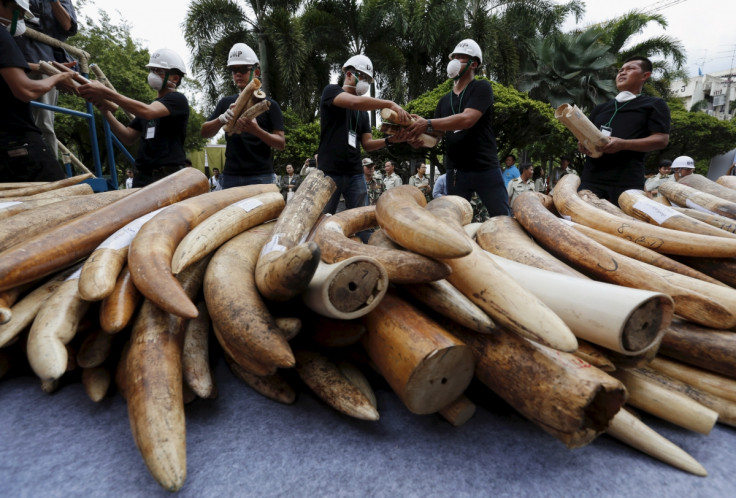Yahoo urged to stop elephant ivory auctions on Japan site

Yahoo has been accused of fuelling the extinction of elephants by allowing ivory trade on its auction website in Japan. Avaaz, an online activist network with offices in London and New York, has launched a petition urging Yahoo CEO Marissa Meyer and its Japanese head Manabu Miyasaka "to urgently stop all ivory sales from site/platform in Japan and other markets."
"Several big brands like Google and Amazon are refusing to sell ivory. Yahoo is one of the few major online markets left. But we could influence that decision," Avaaz said on its website. "Right now Yahoo is losing some of its best employees, and the CEO is offering millions to convince people to stay. If we threaten to lift the lid on Yahoo's bloody secret, she could lose staff even faster, and may reconsider the costs of this cruel trade."
Over a million people have signed the petition. In 2015, Avaaz launched a similar petition against Craigslist urging a ban on ivory sales.
According to Avaaz's estimates, more than 12 tonnes of elephant tusks and cut pieces of ivory were sold on Yahoo Japan's auction websites between 2012 and 2014. Ivory is auctioned on its site at prices ranging from $20 (£14, €18) for a trinket to $60,000 for a five-tiered pagoda carving. The value of ivory sold on Yahoo's website between 2005 and 2014 has been estimated at over $27 million by UK's Environmental Investigation Agency (EIA).
Yahoo Japan is a joint venture between Yahoo and Softbank. The US company says it does not have a controlling stake in the joint venture.
Speaking to Guardian, Adam Peyman, wildlife programme manager at Humane Society International, said, "It's truly unfortunate and there are indications this trade is fueling poaching of elephants and the illegal trade of ivory into Japan and on to places such as China, aided by corruption in the registration system."
"Yahoo needs to put more pressure on Yahoo Japan but we don't have high hopes. With other countries putting more regulations on to ivory, they will probably do even better than before because of the increased business opportunity."
A Yahoo spokeswoman said: "At Yahoo, we understand the concerns raised by this campaign and we in no way condone the sale of products made with ivory obtained from any animal at risk of extinction." Yahoo also said it does not accept ads for ivory under its existing policies.
The international trade of elephant ivory is governed by the United Nations Convention on International Trade in Endangered Species of Wild Fauna and Flora (CITES).
EIA's study of Japan's internet ivory trade included an analysis of 10 years of Yahoo's Japan site. The group has monitored Yahoo for quite some time. In April 2015, it found that whale and dolphin meat sold by Yahoo Japan contained unsafe levels of mercury.
Yahoo Japan is the only online retailer in the country that continues to sell cetacean products. Rakuten, Japan's biggest online retailer, stopped selling whale and dolphin meat following order from the international court of justice.
© Copyright IBTimes 2025. All rights reserved.





















